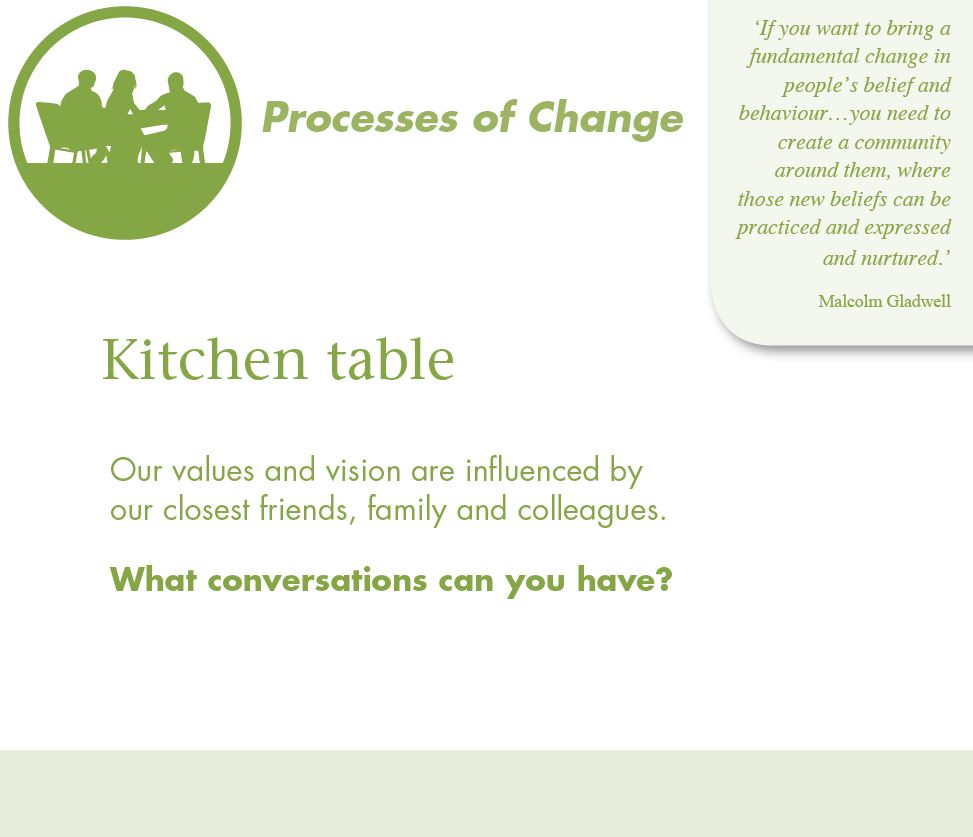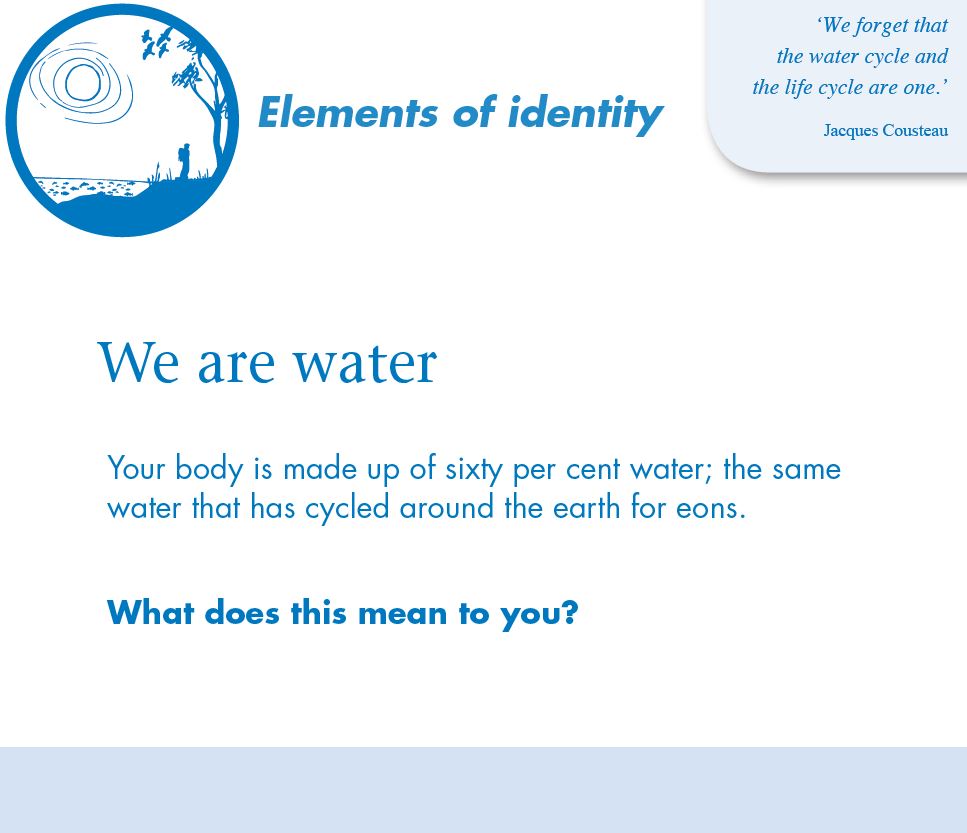Ian McBurney partnered with Innovative Resources to create the Talking ecoLogical cards in 2013. A lot has changed in the world since then. We asked Ian to spend some time reflecting on the last 20 years.
Can you tell us a bit about the work you do?
It’s an interesting time to ask me that question. For twenty years I have worked as an environmental educator with all levels of government, businesses, manufacturing plants, hospitals, communities and schools, with a focus on change practice. I have been an MC, facilitator and speaker for hundreds of sustainability focussed events and conferences. I’ve worked with over 20,000 people on sustainability and change, reducing power bills, waste bills, water bills and petrol bills, improving products and services, establishing organisational green teams, working with executive teams on strategy and even delivering environmental theatre in schools.
Five years ago, I hooked up with a brilliant group of people and we began work on a digital platform called bHive Cooperative. www.bHive.coop aims to create a local economy that looks after people and the local place. This work has now eclipsed the former; I’m spending all my time gearing up for the launch of bHive in October. Our first platform is called ‘Villages’ and it will connect neighbours for mutual aid and enable us to share access to stuff and skills. Keep an eye out for it! With COVID-19, ‘Villages’ is becoming more important every day as we now need digital tools to connect with each other and to look after each other. My work began in ecological sustainability; I now believe that we must solve our social and ecological issues together as they are one and the same.
You’ve worked in this space for a long time. What changes have you seen in the past 20 years?
The most positive change I have seen is the exponential rise in research on the many impacts of nature on the brain and on mental health. We have always known that we feel better after a walk in nature, but the studies were few. Connection to nature is good for our mental, physical and spiritual health, for our physical development, balance, eyesight, concentration, study scores, white blood cell production, mood and much more. In many countries, doctors are now prescribing nature for all sorts of mental health conditions. (Google it to find out more.)
Solar power and wind power have gone from small niche possibilities to the major players in the world energy system, now outperforming fossil fuels on the open market. Electric vehicles are following the same path, about to go mainstream and outcompete the petrol engine. Building regulations have improved, ensuring more energy efficient homes are built.
The biggest change I have seen over the last 20 years, however, has been in the divisive debates being played out in politics and the media. Having clean air for example, should matter to the entire political spectrum. Indeed, it was the right wing politician Richard Nixon who signed the clean air act in 1970—the most powerful and impactful piece of environmental legislation ever created. The last twenty years has seen runaway climate change and biodiversity loss, huge growth in the numbers of people living in poverty, and the number of billionaires. This political collapse has been bought about by the largest and most highly funded PR campaign in the history of humanity. Largely funded by the fossil fuel industry (who have much to lose), its aim has been to create doubt about science and to protect the status quo.
Twenty years ago the changes we needed to make to ensure that nature could sustain human civilisation were eminently achievable over a 50-year timeframe. We now have 20 years to totally remake every pillar of our society so that they are socially and ecologically restorative, or we will move to a situation where our society cannot function.
What do you believe are the key elements that enable change to happen?
I have been writing a six-part blog series on Leadership and Change Practice, called ‘From the Campfire to the Kitchen Table’. You can see the long answer to this question at www.ianmcburney.com.
The short answer?
The reason I created Talking ecoLogical was that the answers to our sustainability challenges almost all rely on cultural change, and conversations are the bedrock of culture. Almost everyone knows that ecological sustainability is a good thing. But we lack the ability to have deep conversations about the journey and what is required. We don’t need ‘experts’, we need to find each other and have conversations for change.
Find others: There are always others out there who want the same change that you do. Find them and work with them.
Time: Time to think, build relationships, try new things, adjust and improve, contemplate and achieve real results. We are far too short-term focussed.
Trust process over outcomes: For real change to occur, we need to create powerful processes rather than lists of outcomes. In my experience, good processes will always create far better outcomes. This approach is hard to navigate when it comes to grants and government funding and short-term reporting. But do it anyway!
Leader-full: We all need to act like we are leaders. Everyone needs to step up and work together to bring out the best in each other. We need to get rid of the stereotypical ‘older, white, privileged male standing on a hill telling everyone what to do’ model of leadership.
Readiness: The biggest moment on a journey of change is enabling and encouraging others to be really ready to change themselves. If we’re not really ready to change, there is no point moving forwards.
Purpose: What are you aiming to achieve in one sentence? What is the inspiring end-goal you are working towards? What greater purpose do we have to work together on?
Perseverance: All meaningful change requires work and perseverance. We need to be prepared to put in the hard yards.
Can you give an example of change that you found inspiring or encouraging?
The East Keilor Sustainability Street began in 2003 with its first meeting in a bus shelter, because the local community were unsure of each other. The only thing they had in common was a vacant block of land.
Sustainability Street was a community development and environmental education approach that bought communities together around sustainable living. Within a few years they had created a brilliant community garden with hundreds of members. They worked with the council, the water board and local community groups. They built a shed, water tanks, planted a shared orchard, compost systems and a playground.
After two years they also had members reporting improved mental and physical health. Nearly 20 years later they are going from strength to strength. When people come together with a shared purpose they can totally change the world around them.
Most of our readers are social workers, psychologists, counsellors or teachers. Why is it important for them to think about environmental sustainability in their work with clients/students?
Connection to nature should be an integral part of social work. The impacts of nature on mental and physical health are huge. Being in, caring for and restoring nature should be a key focus of the social sector. Our homes, streets and cities need to be full of nature and our wild places protected.
Looking after people and the planet are two sides of the same coin. They are both about care for the other and thinking about something bigger than the self. We rely totally upon nature to provide the clean air, water and soil that life requires. Our bodies are ecological systems and we are fundamentally social beings—we just need to look at the way a virus spreads to see this.
But the ecological and the social are even more deeply entwined. One of the key findings of the Drawdown project, which ranked all climate change solutions globally in terms of impact, was that the number one climate solution in the world was a social solution—educating girls and giving them access to family planning has a greater impact on the climate than all of the wind or solar power in the world.
The impacts of ecological breakdown on mental health and social cohesion, from recent natural events like floods, bushfires, heatwaves and global pandemics, is a taste of what is coming if we do not create an ecologically restorative society.
It’s worth stating clearly that increased frequency and scale of pandemics have been predicted for over thirty years as global temperatures rise and biodiversity is destroyed. We can expect more in coming years until we reverse these trends.
Reducing power bills, water bills, waste bills, paper bills, petrol bills and more are good things to do for the planet and can also free up cash to spend on social services.
Sustainability is everyone’s job, every day. Every sector of the economy needs to play its part. Every nurse, builder, teacher, politician, accountant, social worker and CEO needs to work actively to ensure that their workplace, their home and their community is moving from environmentally damaging to ecologically restorative. No one can buy out. Civilisation is at stake.
If you could give people one piece of advice, what would it be?
Prioritise everything in your life to ensure that we build a socially- and ecologically- restorative economy. The alternative is unconscionable.



